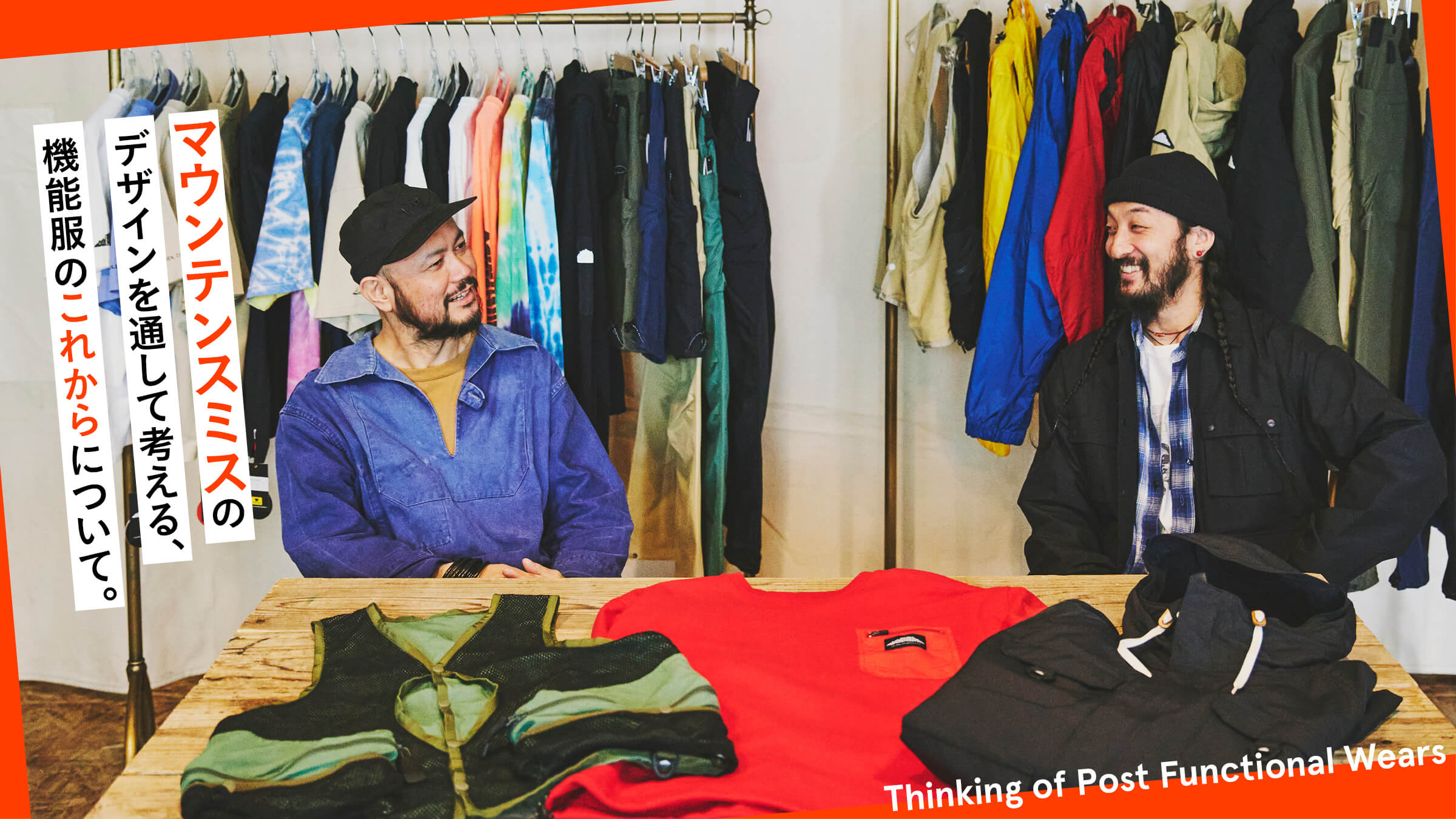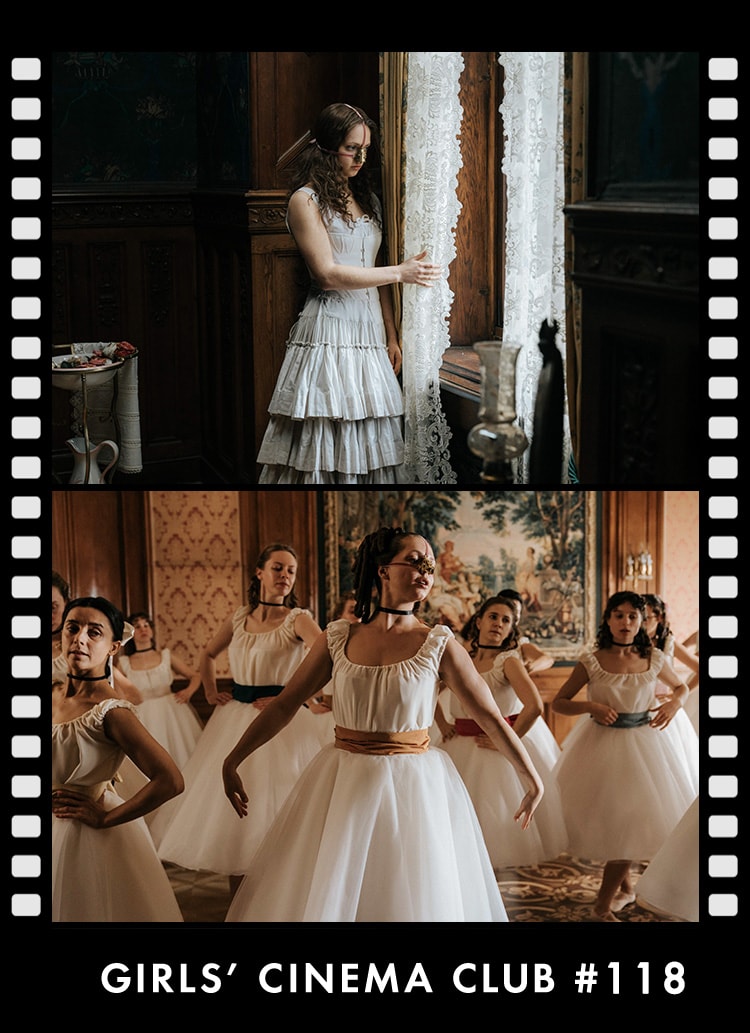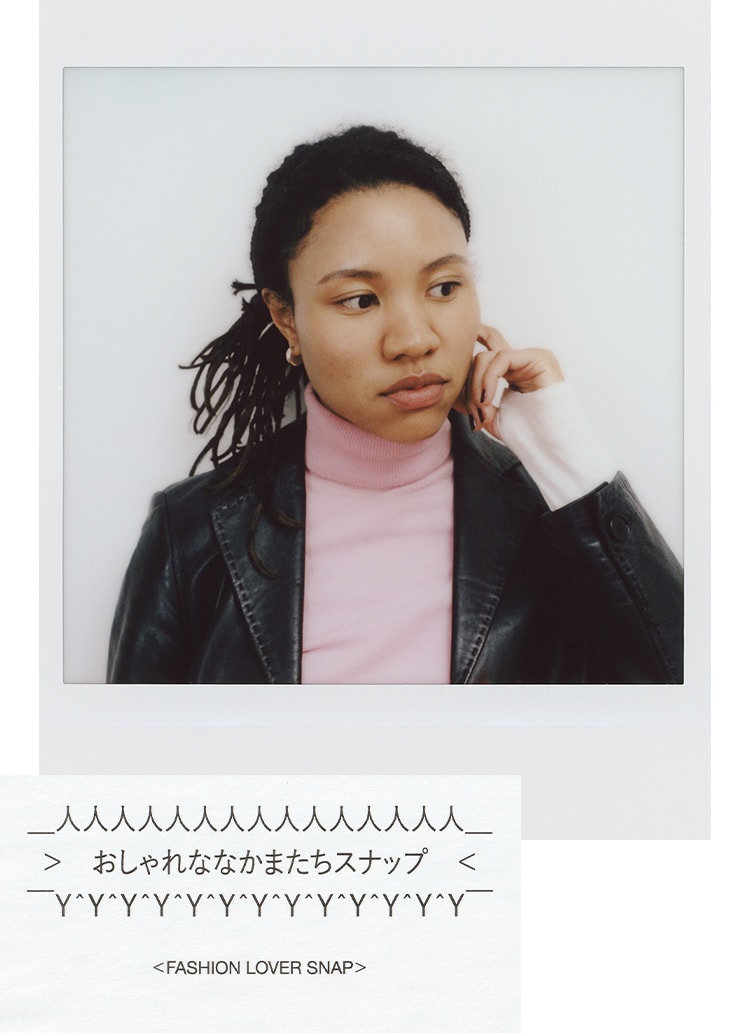Simply designing is not enough. A proper story is necessary.
What was the starting point for the design?
Yamane:As I mentioned earlier, I had an image of the "Lumber Pack" when I thought of "Mountainsmith. So, while following the details of that bag, I was also impressed by the color combination of black, blue, and red, so I reflected that in the clothes. I was also inspired by the early logo.

This is the logo.
Yamane:I think the logo is a bit hippie-ish, or perhaps it was created because the brand was founded in the 1970s. I took the liberty of interpreting that the people who worked there at the time probably liked Woodstock, too, and let the image grow (laughs).

Kuze:When I saw these clothes, I felt the culture of the 70's, but at the same time, I thought the design was typical of Mr. Yamane. The functional details are combined with a fashionable modesty.
Yamane:I simply love such items; I collect military and outdoor clothing from the 70s and 80s. At that time, clothes that fused analog materials with newly developed high-tech materials were coming out, and there were not many clothes that made full use of so-called all high-technology. The 60/40 cloth used in mountain parkas, for example, has a somewhat analog feel to it, don't you think?
The fabric is a blend of 60% cotton and 401 TP10T nylon. It is resistant to abrasion, and as the cotton absorbs moisture, the yarn expands, making it waterproof.
Yamane:This kind of feeling has something in common with "Mountainsmith. Rather than suddenly going all high-tech and overstretched, you are taking something good old and evolving it a little bit at a time.
Q. What is the essence of "Mountainsmith" that is expressed in your unique design?


Yamane:This overlaps with what we talked about earlier, but the design comes from the color matching and the details of the bag. For example, the parts that come with the bags are also used in the clothes. I try to create a landing point that people who have used [Mountainsmith] bags in the past would think, "I see.
Kuze:Indeed, when I look at the details, I feel the "Mountainsmith" style in many places.

Did you have any requests from the brand side?
Yamane:Not at all (laughs). (laughs) But just designing something doesn't make sense. It is necessary to have a clear story, such as what we have seen in Colorado, or details that are related to the bag. I discussed with the Japanese staff how I wanted to make the bags from scratch using recyclable fabrics, even if they were synthetic fibers, and how I wanted to design the bags in this way. But that doesn't mean that we are not emphasizing the recycling aspect of our products, and I think it's fine if people who buy our products realize afterwards that the fabrics are recyclable. I designed the products with my own sense of atmosphere.
The design is also designed with the customer's hand in mind.
A: Looking at the recent fashion trends, we are seeing functional items such as these in many stores. How do you see this trend?
Yamane:It is true that the number has increased. That is why I believe we must move on to the next phase. Whenever we pursue functionality, we are confronted with environmental problems. Chemical fibers use petroleum. Therefore, we have to think about how to solve that problem.

In that sense, Mountainsmith has an environmentally conscious attitude.
Yamane:That's right. While function, design, and fashion enjoyment are the premise, we also consider what happens after the product is in the hands of the customer. I think there are still very few brands like that in Japan.
Apart from environmental issues, the new coronavirus is currently raging around the world. Under such circumstances, I think people's shopping habits are changing in a more serious direction.
Yamane:Yes, I agree. But it seems to me that this kind of extra design is effective for the way such consumption activities are. The way to communicate is important. I don't think it is good to force something. So I think it is better now to make people aware of it in a natural way.
Kuze:I would like to communicate more of the appeal of such a brand. I would like to upgrade the visuals we produce each season.

Do you have any plans for Mountainsmith in the future?
Yamane:In the area of environmentally conscious processes, there are still many things we can do, such as reviewing our factory production processes, so it will take time and effort, but we would like to complete those one by one in the future.
We also have plans to produce bags derived from this apparel line in the future. This will add more depth to the brand's worldview, so please keep your eyes peeled.








